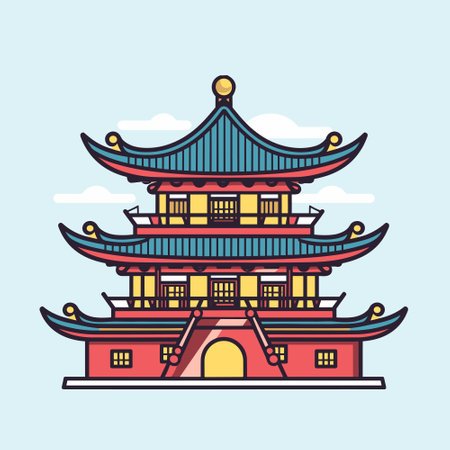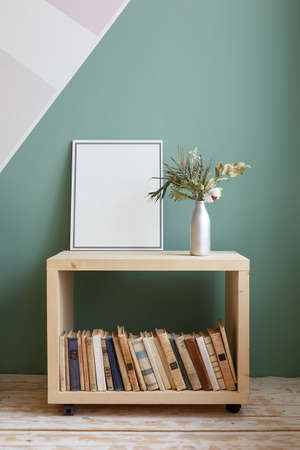1. Understanding Feng Shui in American Homes
Feng Shui is an ancient Chinese practice that focuses on arranging your living space to create positive energy, or “chi.” In recent years, more Americans have started to explore how Feng Shui can fit into their homes, blending tradition with modern design. The goal is simple: make your home feel balanced, harmonious, and welcoming for everyone who steps inside.
What Is Feng Shui?
At its core, Feng Shui is about organizing your surroundings in a way that supports health, happiness, and prosperity. It’s not about following strict rules—it’s about making thoughtful choices that help you feel good in your space.
Key Feng Shui Principles for Modern American Interiors
| Principle | Description | Modern Application |
|---|---|---|
| Balance (Yin & Yang) | Harmony between contrasting elements—soft and hard, light and dark. | Mix soft textiles with sleek metal or glass; use both warm and cool colors. |
| Clutter-Free Spaces | Clear spaces promote better energy flow and less stress. | Use storage solutions like baskets or shelves to keep things tidy. |
| Nature Elements | Bringing in natural materials for calmness and grounding. | Add plants, wooden accents, or water features like small fountains. |
| Good Lighting | Bright, natural light uplifts energy. | Maximize sunlight with sheer curtains; add layered lighting options. |
| Personal Touches | Your home should reflect what makes you happy and comfortable. | Incorporate meaningful art pieces, family photos, or favorite colors. |
Adapting Feng Shui to Your Lifestyle
You don’t need to overhaul your entire home to benefit from Feng Shui. Even small updates—like moving furniture for better flow or adding a few new decorative accents—can make a big difference. Many American homeowners choose modern art, sculptures, or colorful cushions as easy ways to bring positive chi into their daily lives. By combining traditional wisdom with your personal style, you can create a space that truly feels like home while inviting good energy into every room.
2. Selecting Modern Art that Amplifies Positive Chi
Choosing the right art for your home can make a big difference in how you feel every day. When you pick modern pieces with Feng Shui in mind, you’re not just decorating—you’re inviting good energy (Chi) into your space. Here’s how to select contemporary art that looks great and helps energy flow freely, all while fitting American tastes and lifestyles.
What Makes Art Feng Shui-Friendly?
In Feng Shui, the art you display should reflect positive vibes, harmony, and intentions for your life. Abstract prints, bold color blocks, or calming nature scenes can work well if they have uplifting themes or colors. Avoid images that feel chaotic, aggressive, or sad. Always choose pieces that inspire you or make you smile when you see them.
Key Elements to Consider When Choosing Art
| Element | Tips for Modern Choices | Feng Shui Benefits |
|---|---|---|
| Color | Pick colors matching the room’s Bagua area: blue/green for growth (East), red for passion (South), white/gray for clarity (West). | Balances energy, sets mood for the space. |
| Subject Matter | Select themes like landscapes, flowing water, joyful abstract forms, or inspiring words in modern fonts. | Encourages peace, motivation, and abundance. |
| Material & Finish | Go for canvas prints, metal wall sculptures, or glass art—avoid sharp edges or heavy/dark frames. | Keeps energy moving smoothly and feels lighter. |
| Scale & Placement | Choose pieces proportionate to wall size; hang at eye level; avoid placing above beds or directly facing doors. | Supports comfortable flow and avoids overwhelming the space. |
Tips for Blending Modern Art with Feng Shui Principles
- Embrace Simplicity: Minimalist pieces with clean lines help maintain calmness and order.
- Add Movement: Abstract art with gentle curves or wave-like patterns encourages active Chi.
- Create Balance: If one side of a room feels heavy, add artwork to the opposite wall for harmony.
- Avoid Negative Imagery: Skip anything depicting storms, loneliness, or conflict—even if it’s trendy.
- Personal Connection: Only display what resonates positively with you and your family—it’s about good feelings as much as design rules!
Popular Modern Art Styles That Work Well with Feng Shui
- Nature Photography: Sunrises, forests, and oceans bring natural elements indoors and boost vitality.
- Geometric Prints: Circles symbolize unity; soft angles add stability without harshness.
- Mood-Boosting Colors: Yellows for happiness in living rooms; blues in bedrooms for restfulness.
- Inspirational Typography: Words like “Love,” “Joy,” or “Peace” in stylish fonts reinforce positive intentions daily.
The art you choose is more than decoration—it’s a way to create an environment that feels both beautiful and balanced. With these tips, it’s easy to find modern accents that fit your personal style while supporting the vibrant flow of Chi throughout your home.

3. Decor Accents for Every Room
Bringing Feng Shui into your American home can be simple and stylish. By choosing the right decorative accents, you can boost positive energy (Chi) while keeping your space modern and comfortable. Here are some practical suggestions for every room, using accents that are popular in the U.S. and easy to find.
Mirrors: Expand Light and Energy
Mirrors are a favorite in both Feng Shui and American decor. They reflect light, make rooms feel bigger, and help spread positive energy. For best results, place mirrors where they will reflect beautiful views or natural light—just avoid putting them directly across from the main door or at the foot of the bed.
| Room | Mirror Placement Tip |
|---|---|
| Living Room | Across from a window to double sunlight |
| Entryway | On a side wall to expand space (not facing the door) |
| Dining Room | Reflecting the dining table for abundance |
Plants: Bring Life Indoors
Houseplants are an excellent way to invite growth and fresh energy. Popular choices like snake plants, pothos, or peace lilies are low-maintenance and fit well with American interiors. Place plants in corners or on shelves to soften sharp edges and fill empty spaces with vitality.
Best Plants for Positive Chi
- Snake Plant: Great for bedrooms and living rooms; filters air and adds structure.
- Pothos: Easy to care for; ideal for kitchens or bathrooms.
- Peace Lily: Symbolizes harmony; perfect for entryways or offices.
Textiles: Comfort with Color and Texture
Pillows, rugs, and throws add warmth while enhancing good vibes. In Feng Shui, color choice matters—greens for renewal, blues for calm, and yellows for happiness. Choose soft fabrics in these colors to create a cozy, balanced atmosphere that matches American style preferences.
Textile Ideas by Room
| Room | Textile Accent |
|---|---|
| Sofa/Living Room | Cushions in soft blue or green hues |
| Bedroom | Bedding with gentle patterns or pastel tones |
| Dining Area | A cheerful yellow runner or placemats |
Add Personal Touches with Meaningful Art
Select artwork that inspires you and fits your personal taste—landscapes, abstract prints, or family photos all work if they spark joy. In Feng Shui, images of nature or uplifting scenes bring positivity. Hang art at eye level in places where you want to feel energized or relaxed.
Quick Tips for Choosing Accents:
- Keep clutter minimal—less is more for smooth Chi flow.
- Select items that make you feel happy and comfortable.
- Avoid sharp-edged decor near areas where you relax.
- Add lighting accents like floor lamps to brighten dark corners.
With these easy updates using mirrors, plants, textiles, and meaningful art, your home can reflect both modern American style and the ancient wisdom of Feng Shui—bringing balance and positive energy into every room.
4. Harmonizing Color Palettes with Feng Shui Principles
Choosing the right colors for your home is a key part of creating positive energy, or chi, in any space. In Feng Shui, colors are more than just decoration—they represent the five elements (Wood, Fire, Earth, Metal, and Water) and influence how we feel in our environments. By thoughtfully selecting wall and furniture colors, you can boost positivity and create balance that fits both modern tastes and Feng Shui traditions.
Understanding the Five Elements Through Color
Each Feng Shui element is linked to specific colors. Here’s a simple guide:
| Element | Colors | Best Rooms | Vibes Created |
|---|---|---|---|
| Wood | Green, Brown | Living Room, Office | Growth, Vitality |
| Fire | Red, Orange, Strong Yellow, Pink | Dining Room, Home Gym | Passion, Energy |
| Earth | Beige, Light Yellow, Sandy Tones | Bedroom, Study | Stability, Nurturing |
| Metal | White, Gray, Metallics | Bathroom, Kids’ Room | Clarity, Precision |
| Water | Blue, Black | Entryway, Meditation Space | Calm, Wisdom |
How to Pick Your Perfect Palette
Create Balance with Accent Colors
If you love neutral walls (a popular choice in the US), add pops of color through art, pillows, rugs, or vases that reflect the elements you want to strengthen. For example, if you want more energy in your living room but don’t want red walls, try adding red throw pillows or a bold artwork.
Select Colors That Fit Your Lifestyle and Mood Goals
- If you need peace and focus: Go for blues and greens in your office or bedroom for calming vibes.
- If you want warmth and togetherness: Earthy tones like beige or terracotta are perfect for family rooms.
- If you crave inspiration or fun: Splashes of orange or yellow in creative spaces lift spirits.
- If you’re after a sleek look: Whites and grays work well for modern homes and help clear mental clutter.
- If you need confidence: A touch of black adds sophistication and grounding energy—think picture frames or side tables.
Avoid Color Overload—Keep It Simple!
You don’t have to use every element color in one room. Stick with 2–3 main hues per space to maintain harmony. Too many strong colors can feel chaotic rather than energizing.
Cultural Tips for American Homes
- Navy blue sofas or accent walls: These offer water element benefits while matching contemporary styles.
- Pale gray kitchens: This color brings in the metal element without feeling cold—add wood shelves or green plants for warmth.
- Breezy earth tones in open-plan spaces: Light sand or soft yellow works beautifully in sunny American homes with lots of windows.
- Add natural textures: Woven baskets or reclaimed wood furniture complement your color palette while inviting good chi.
Your Modern Feng Shui Color Checklist:
- Select 1-2 main Feng Shui element colors that match your goals for each room.
- Add accents using decor pieces if painting feels too bold.
- Aim for flow between rooms by repeating at least one hue throughout your home.
- Prioritize natural light—colors look different depending on sunlight exposure.
With these easy color choices inspired by Feng Shui principles and American decor trends, your home will radiate both style and good energy!
5. Integrating Feng Shui Art Without Sacrificing Personal Style
Blending Feng Shui principles with your own sense of style can seem tricky, but it’s absolutely possible to create a modern American home that feels both vibrant and uniquely yours. Here’s how you can thoughtfully incorporate Feng Shui art and décor while still expressing your individuality.
Finding Your Balance: Feng Shui Meets Modern Design
The key is balance. You don’t need to fill every space with traditional symbols or colors. Instead, choose accents that enhance positive chi (energy) and resonate with your tastes. For example, a sleek abstract painting in calming blues can evoke the water element, while a cozy terracotta vase might bring in the earth element.
Quick Guide: Harmonizing Feng Shui and Personal Aesthetics
| Feng Shui Principle | Modern Accent Ideas | How It Boosts Chi |
|---|---|---|
| Water Element | Navy blue throw pillows, glass vases, wave-patterned art | Brings calm and flow to living spaces |
| Wood Element | Bamboo frames, houseplants, wooden shelves | Encourages growth and vitality |
| Fire Element | Candles, warm lighting, red accent pieces | Adds energy and inspiration |
| Earth Element | Ceramic pots, stone coasters, earthy color rugs | Creates stability and grounding vibes |
| Metal Element | Metallic picture frames, silver sculptures, round mirrors | Supports clarity and organization |
Personalize With Meaningful Artwork
You don’t have to use only traditional Chinese art—choose artwork that speaks to you but also supports good energy. For example, landscape photography from your favorite national park can offer natural beauty and tranquility, which is very much in line with Feng Shui’s appreciation for nature.
Tips for Seamless Integration:
- Edit Your Space: Don’t overcrowd walls or shelves. Leave room for energy to flow.
- Mix Textures: Combine smooth ceramics with natural wood or lush textiles for a layered look.
- Select Colors Mindfully: Use accent colors intentionally to represent elements without overwhelming your palette.
- Add Greenery: Healthy plants are both stylish and excellent for positive chi—think fiddle leaf figs or snake plants popular in American homes.
- Create Focal Points: Let one or two pieces of meaningful art take center stage rather than spreading small items everywhere.
Your Home, Your Harmony
Ultimately, the best Feng Shui décor is the one that makes you feel good every time you walk through the door. Experiment with placements, try different combinations of accents, and remember: blending Feng Shui with your personal style is about creating a space that feels uplifting, welcoming, and truly yours.


